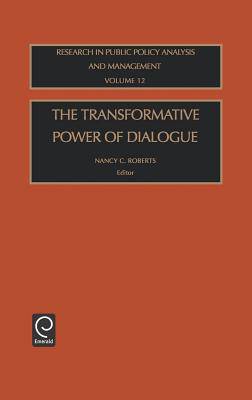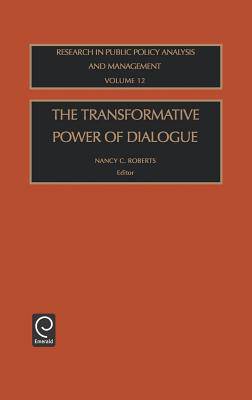
- Afhalen na 1 uur in een winkel met voorraad
- Gratis thuislevering in België vanaf € 30
- Ruim aanbod met 7 miljoen producten
- Afhalen na 1 uur in een winkel met voorraad
- Gratis thuislevering in België vanaf € 30
- Ruim aanbod met 7 miljoen producten
Zoeken
The Transformative Power of Dialogue
€ 293,45
+ 586 punten
Omschrijving
Dialogue has a long lineage but a relatively recent research tradition. The goal of this volume is to elevate dialogue onto the research agenda by addressing such questions as: how can we make dialogue actionable and effective in organizational practice? How can dialogue inform decision making in a particular problem domain or community of interest when multiple people, groups, and organizations are involved? How can dialogue be utilized to build more vibrant, democratic communities? To what extent can the Internet and new information technology support the dialogical process? How can we describe the relational field that dialogue creates and build a theory of social communication and information processing that explains the organization and dynamics of dialogue, and its implications for psychosocial function? The volume addresses these questions in four sections: the foundations, perspectives, practice and theory of dialogue. By design, the contributors draw from wide-ranging philosophical and disciplinary traditions: anthropology, communication, information, management, neuro-psychology, organization theory, philosophy, psychology, political science, public policy, quantum physics, and sociology. As dialogue attempts to break down the barriers among people, the authors defend a more robust understanding of dialogue that requires scholars and practitioners to move beyond the confines of one academic tradition and to study it in a more comprehensive and integrated way. The disciplinary reach of this title should attract scholars and practitioners interested in the general area of dialogue and communication, as well as related topics such as collaboration, public engagement, citizen participation, deliberative democracy, stakeholder relations, networks, interorganizational relationships, and community building.
Specificaties
Betrokkenen
- Uitgeverij:
Inhoud
- Aantal bladzijden:
- 308
- Taal:
- Engels
- Reeks:
- Reeksnummer:
- nr. 12
Eigenschappen
- Productcode (EAN):
- 9780762309047
- Verschijningsdatum:
- 9/10/2002
- Uitvoering:
- Hardcover
- Formaat:
- Genaaid
- Afmetingen:
- 161 mm x 231 mm
- Gewicht:
- 598 g

Alleen bij Standaard Boekhandel
+ 586 punten op je klantenkaart van Standaard Boekhandel
Beoordelingen
We publiceren alleen reviews die voldoen aan de voorwaarden voor reviews. Bekijk onze voorwaarden voor reviews.










